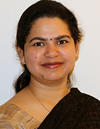| Termin: | 15.-17.09.2021 |
| Dauer: | 10:00-17:00 |
| Ort: | Virtual Conference zur Konferenzseite |

| Wednesday, September 15 | |||||||||||||||||||||||||||||||||||||||||
| 19:30 | |||||||||||||||||||||||||||||||||||||||||
|
Claudia Prediger
CAST e.V.

|
EAB Award ceremony and BIOSIG online welcome reception
|
||||||||||||||||||||||||||||||||||||||||
Thursday, September 16 BIOSIG - MAIN CONFERENCE - |
|||||||||||||||||||||||||||||||||||||||||
| 10:00 | |||||||||||||||||||||||||||||||||||||||||
|
Christoph Busch
Hochschule Darmstadt

|
BIOSIG Conference Opening
|
||||||||||||||||||||||||||||||||||||||||
| Chair: Christoph Busch | |||||||||||||||||||||||||||||||||||||||||
| 10:10 | |||||||||||||||||||||||||||||||||||||||||
|
John McCauley
West Virginia University

|
Identical Twins as a Facial Similarity Benchmark for Human Facial Recognition
The problem of distinguishing identical twins and non-twin look-alikes in automated facial recognition applications has become increasingly important with the widespread adoption of facial biometrics. Utilizing a large twin dataset, this work implements a deep convolutional neural network to determine the facial similarity of identical twins in general. This network is then applied to large-scale face datasets to identify similar face pairs.
CAST-Mitglieder können hier die Vortragsunterlagen herunterladen.
|
||||||||||||||||||||||||||||||||||||||||
| 10:30 | |||||||||||||||||||||||||||||||||||||||||
|
Christian Rathgeb
Hochschule Darmstadt

|
Impact of Doppelgängers on Face Recognition: Database and Evaluation
Lookalikes, a.k.a. doppelgängers, increase the probability of false matches in a facial recognition system, in contrast to random face image pairs selected for non-mated comparison trials. In order to analyse and improve the robustness of automated face recognition, datasets of doppelgänger face image pairs are needed. In this work, we present a new face database consisting of 400 pairs of doppelgänger images. Subsequently, two state-of-the-art face recognition systems are evaluated on said database and other public datasets, including the Diguised Faces in The Wild (DFW) database. It is found that the collected image pairs yield very high similarity scores resulting in a significant increase of false match rates. To facilitate reproducible research and future experiments in this field, the dataset will be made available.
CAST-Mitglieder können hier die Vortragsunterlagen herunterladen.
|
||||||||||||||||||||||||||||||||||||||||
| 10:50 | |||||||||||||||||||||||||||||||||||||||||
|
Pedro Neto
INESC TEC & Universidade do Porto

|
My Eyes are up here: Promoting Focus on Unconvered Regions in Masked Face Recognition
The recent Covid-19 pandemic and the fact that wearing masks in public is now mandatory in several countries, created challenges in the use of face recognition systems (FRS). In this work, we address the challenge of masked face recognition (MFR) and focus on evaluating the verification performance in FRS when verifying masked vs unmasked faces compared to verifying only unmasked faces. We propose a methodology that combines the traditional triplet loss and the mean squared error (MSE) intending to improve the robustness of an MFR system in the masked-unmasked comparison mode.
CAST-Mitglieder können hier die Vortragsunterlagen herunterladen.
|
||||||||||||||||||||||||||||||||||||||||
| 11:10 | Break | ||||||||||||||||||||||||||||||||||||||||
| Chair: Kiran Raja | |||||||||||||||||||||||||||||||||||||||||
| 11:40 | |||||||||||||||||||||||||||||||||||||||||
|
Brady Williams
West Virginia University

|
Interoperability of Contact and Contactless Fingerprints Across Multiple Fingerprint Sensors
Contactless fingerprinting devices have grown in popularity in recent years due to speed and convenience of capture and the increased hygiene due to global health concerns. In this paper, we present a contactless vs. contact interoperability assessment of several contactless devices, including cellphone fingerphoto capture. During the interoperability assessment, the quality of the fingerprints was considered using the NBIS NFIQ software as well as an analysis of the impact of finger size and skin melanin content on contactless match performance.
CAST-Mitglieder können hier die Vortragsunterlagen herunterladen.
|
||||||||||||||||||||||||||||||||||||||||
| 12:00 | |||||||||||||||||||||||||||||||||||||||||
|
Labib Chowdhury
North South University

|
Curricular SincNet: Towards Robust Deep Speaker Recognition by Emphasizing Hard Samples in Latent Space
This paper proposes Curricular SincNet (CL-SincNet), an improved SincNet [1] model where we use a curricular loss function to train the SincNet architecture. The proposed model is evaluated on multiple datasets, including TIMIT and LibriSpeech using intra-dataset and inter-dataset evaluation protocols. In inter-dataset test protocol, it achieves the best overall results with a reduction of 4\% error rate compared to SincNet and other published work.
CAST-Mitglieder können hier die Vortragsunterlagen herunterladen.
|
||||||||||||||||||||||||||||||||||||||||
| 12:20 | |||||||||||||||||||||||||||||||||||||||||
|
Enrique Argones Rua
KU Leuven

|
Gait Authentication based on Spiking Neural Networks
In this paper we address gait authentication based on inertial signals using a novel error backpropagation approach designed for spiking neural networks, which provide great energy consumption savings. We compare the proposed solution to state-of-the-art systems based on conventional neural networks on an open set experimental protocols, obtaining promising results, showing the good fit of the proposed approach for biometric authentication tasks.
CAST-Mitglieder können hier die Vortragsunterlagen herunterladen.
|
||||||||||||||||||||||||||||||||||||||||
| 12:40 | Lunch Break | ||||||||||||||||||||||||||||||||||||||||
| Chair: Marta Gomez-Barrero | |||||||||||||||||||||||||||||||||||||||||
| 13:25 | |||||||||||||||||||||||||||||||||||||||||
|
Istvan Szilard Racz
EU-Lisa

|
KEYNOTE
The Entry-Exit-System (EES)
The new European Entry-Exit System (EES) is planned to enter into operations in 2022, aiming at further strengthening the internal security of Europe and the Schengen Zone through centralized registration of the entries and exits of third country travellers. EES, by exposing common operations and workflows to its end-users, will connect hundreds of border crossing points into an information exchange network, ensuring high level of verification and identification accuracy through the use of a combination of alphanumeric and live biometric data. The keynote talk will elaborate on the main principles along which EES, a unique large scale IT system has been built, highlighting the main stumbling blocks as well as identified opportunities during the design and implementation phases. The scope of the presentation will also include the shared Biometric Matching Service connected to EES and the other existing and future eu-LISA core business systems to process biometric identity data.
CAST-Mitglieder können hier die Vortragsunterlagen herunterladen.
|
||||||||||||||||||||||||||||||||||||||||
| Chair: Ana Sequeira & Antitza Dantcheva | |||||||||||||||||||||||||||||||||||||||||
| 14:10 | |||||||||||||||||||||||||||||||||||||||||
|
|
Poster Session 1 (p1 - p6)
|
||||||||||||||||||||||||||||||||||||||||
| 15:10 | Break | ||||||||||||||||||||||||||||||||||||||||
| Chair: Ana Sequeira & Antitza Dantcheva | |||||||||||||||||||||||||||||||||||||||||
| 15:30 | |||||||||||||||||||||||||||||||||||||||||
|
|
Poster Session 2 (p7 - p16)
|
||||||||||||||||||||||||||||||||||||||||
| 17:10 | Break | ||||||||||||||||||||||||||||||||||||||||
| 17:30 | |||||||||||||||||||||||||||||||||||||||||
|
|
Social Event
|
||||||||||||||||||||||||||||||||||||||||
| Friday, September 17, Chair: Christian Rathgeb | |||||||||||||||||||||||||||||||||||||||||
| 09:00 | |||||||||||||||||||||||||||||||||||||||||
|
Richa Singh
IIT Jodhpur

|
KEYNOTE
On Building Dependable Biometric Systems
Biometric systems utilizing modern machine learning and computer vision algorithms have demonstrated superlative performances in various applications and have been utilized in real world scenarios. Despite the enhanced performance, robustness of these algorithms against attacks, explainability, trustability, and fairness/bias are major concerns. This talk will give an overview of "dependable" aspects of building biometric systems. We will take face recognition as a case study and discuss different types of attacks such as physical attacks, digital adversarial attacks, and morphing/tampering using GANs. We will also discuss the effect of bias on face recognition models and showcase that factors such as age and gender variations affect the performance of modern algorithms. Finally, we will also discuss the explainability models for understanding modern biometric algorithms
CAST-Mitglieder können hier die Vortragsunterlagen herunterladen.
|
||||||||||||||||||||||||||||||||||||||||
| 09:45 | |||||||||||||||||||||||||||||||||||||||||
|
Alperen Kantarci
Istanbul Technical University

|
Shuffled Patch-Wise Supervision for Presentation Attack Detection
We propose a new PAD approach, which combines pixel-wise binary supervision with patch-based CNN. We show that training a CNN with face patches allows the model to distinguish spoofs without learning background or dataset-specific traces. Our method shows superior performance on inter-dataset test results.
CAST-Mitglieder können hier die Vortragsunterlagen herunterladen.
|
||||||||||||||||||||||||||||||||||||||||
| 10:05 | |||||||||||||||||||||||||||||||||||||||||
|
Xingbo Dong
Monash University

|
Towards Generating High Definition Face Images from Deep Templates
We propose a method to generate high definition (HD) face images from deep features, and attempt to utilize the generated HD face images to access a targeted FR system by launching type-I and type-II attacks. The experimental results suggest the effectiveness, which achieves an attack performance as high as SAR=46.08\% (18.30\%) @ FAR=0.1 threshold under type-I (type-II) attack settings, and 50.7\% of the generated HD face images can pass one commercial off-the-shelf (COTS) liveness detection.
CAST-Mitglieder können hier die Vortragsunterlagen herunterladen.
|
||||||||||||||||||||||||||||||||||||||||
| 10:25 | Break | ||||||||||||||||||||||||||||||||||||||||
| Chair: Marta Gomez-Barrero | |||||||||||||||||||||||||||||||||||||||||
| 10:45 | |||||||||||||||||||||||||||||||||||||||||
|
Tamas Bisztray
University of Oslo

|
Emerging biometric modalities and their use: loopholes in the terminology of the GDPR and resulting privacy risks
In the current EU data protection regulation, processing biometric data for classification purposes receive less protection compared to biometric recognition. Moreover, what researchers would already consider biometric data, might not legally classify as such under the current regulatory framework (GDPR), when processed for classification related tasks. We show how this can be the source of unique privacy risks that can have a negative impact on personal rights and freedoms.
CAST-Mitglieder können hier die Vortragsunterlagen herunterladen.
|
||||||||||||||||||||||||||||||||||||||||
| 11:05 | |||||||||||||||||||||||||||||||||||||||||
|
Hiroto Tamiya
NEC Corporation

|
Improved Post-Quantum-secure Face Template Protection System…
We propose an efficient face template protection system based on homomorphic encryption. By utilizing a message packing method, the proposed system computes the squared Euclidean distance between facial features by a single homomorphic multiplication. Our experiments show the transaction time of the proposed system is about 14 times faster than that of the system presented in BIOSIG2020.
CAST-Mitglieder können hier die Vortragsunterlagen herunterladen.
|
||||||||||||||||||||||||||||||||||||||||
| 11:25 | |||||||||||||||||||||||||||||||||||||||||
|
Amina Bassit
University of Twente

|
Bloom Filter vs. Homomorphic Encryption: Which approach protects the biometric data and satisfies ISO/IEC 24745?
Bloom filter (BF) and homomorphic encryption (HE) are popular modern techniques used to design biometric template protection (BTP) schemes that aim to protect the sensitive biometric information during storage and the comparison process. However, in practice, many BTP schemes based on BF or HE violate at least one of the privacy requirements of the international standard ISO/IEC 24745: irreversibility, unlinkability and confidentiality. In this paper, we investigate the state-of-the-art BTP schemes based on these two approaches and assess their relative strengths and weaknesses with respect to the three requirements of ISO/IEC 24745.
CAST-Mitglieder können hier die Vortragsunterlagen herunterladen.
|
||||||||||||||||||||||||||||||||||||||||
| 11:45 | Break | ||||||||||||||||||||||||||||||||||||||||
| Chair: Arslan Brömmer | |||||||||||||||||||||||||||||||||||||||||
| 12:05 | |||||||||||||||||||||||||||||||||||||||||
|
Kazuya Kakizaki
NEC Corporation & University of Tsukuba

|
Toward Practical Adversarial Attacks on Face Verification System
We study the adversarial attacks against face verification systems.
CAST-Mitglieder können hier die Vortragsunterlagen herunterladen.
|
||||||||||||||||||||||||||||||||||||||||
| 12:25 | |||||||||||||||||||||||||||||||||||||||||
|
Zohra Rezgui
University of Twente

|
Transferability Analysis of an Adversarial Attack on Gender Classification to Face Recognition
Machine learning (ML) classifiers are vulnerable to diverse adversarial attacks, altering the classification prediction by adding a crafted perturbation. According to ML literature, those attacks are transferable among models that perform the same task. In this paper, we study the transferability of the FGSM adversarial attack between a gender classifier and a face recognition classifier where both classifiers have the same VGG16-based architecture but trained to perform different tasks.
CAST-Mitglieder können hier die Vortragsunterlagen herunterladen.
|
||||||||||||||||||||||||||||||||||||||||
| 12:45 | Lunch Break | ||||||||||||||||||||||||||||||||||||||||
| Chair: Olaf Henniger | |||||||||||||||||||||||||||||||||||||||||
| 13:30 | |||||||||||||||||||||||||||||||||||||||||
|
Claudio Yáñez
TOC Biometrics

|
Image Quality Assessment on Identity Documents
ID-card photographs are increasingly being used for identity verification in remote services. We developed a method for performing Image Quality Assessment (IQA) on ID-card images, using BRISQUE features and a Support Vector Regression model. For this purpose, an IQA dataset of 204 Chilean ID cards was built, and different features were compared.
CAST-Mitglieder können hier die Vortragsunterlagen herunterladen.
|
||||||||||||||||||||||||||||||||||||||||
| 13:50 | |||||||||||||||||||||||||||||||||||||||||
|
João Tremoço
University of Coimbra

|
QualFace: Adapting Deep Learning Face Recognition for ID and Travel Documents with Quality Assessment
In document security applications, the face portraits encountered follow specific conditions dictated by international standards. The availability of public datasets used for face recognition is limited and not optimised for document security scenarios. The method presented uses quality information of face images to optimise the training process of current face recognition methods towards the specific goal of document applications.
CAST-Mitglieder können hier die Vortragsunterlagen herunterladen.
|
||||||||||||||||||||||||||||||||||||||||
| 14:10 | |||||||||||||||||||||||||||||||||||||||||
|
Tim Oblak
University of Ljubljana

|
Fingermark Quality Assessment: An Open-Source Toolbox
Fingermark quality assessment is an important, but rather subjective step in a forensic fingerprint identification process, performed by trained fingerprint examiners. Our goal is to develop an automated fingermark quality assessment tool, which would assist the forensic examiners in their work. In this paper, we present a fast, open-source, and well documented fingermark quality assessment toolbox for developers, which contains more than 20 algorithms for processing of fingermark images, and propose a baseline quality assessment pipeline to demonstrate its usage.
CAST-Mitglieder können hier die Vortragsunterlagen herunterladen.
|
||||||||||||||||||||||||||||||||||||||||
| 14:30 | Break | ||||||||||||||||||||||||||||||||||||||||
| Chair: Raymond Veldhuis | |||||||||||||||||||||||||||||||||||||||||
| 14:50 | |||||||||||||||||||||||||||||||||||||||||
|
Brendan Klare
Brendan Klare

|
KEYNOTE
How a Global Pandemic Altered the Trajectory of Automated Face Recognition Technologies
The COVID-19 pandemic has changed the lives of nearly everyone on the planet. As it relates to automated face recognition, the most direct consequence has been the near ubiquitous facial masks in public spaces and the need for contactless systems. At the same time, several indirect consequences have emerged including a shift from brick-and-mortar businesses to digital services, massive-scale peaceful protests to highlight social injustices, and violent riots across the globe. This talk will highlight how face recognition technologies have played a role in all of these consequences, and focus on areas of improvement needed from academic research in the years ahead.
CAST-Mitglieder können hier die Vortragsunterlagen herunterladen.
|
||||||||||||||||||||||||||||||||||||||||
| 15:35 | |||||||||||||||||||||||||||||||||||||||||
|
Marta Gomez-Barrero
Hochschule Ansbach

|
Awards/ Closing Remarks
|
||||||||||||||||||||||||||||||||||||||||
Wenn Sie noch Fragen haben, wenden Sie sich bitte an:
Marta Gomez-Barrero
Hochschule Ansbach
E-Mail: conference@biosig.de
Christoph Busch
Hochschule Darmstadt
E-Mail: conference@biosig.de
Simone Zimmermann
CAST e.V.
Tel.: +49 6151 869-230
E-Mail: simone.zimmermann![]() cast-forum.de
cast-forum.de